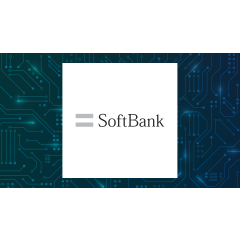In the dynamic landscape of global technology and telecommunications, investors frequently weigh the merits of established giants against emerging powerhouses. This comprehensive analysis dives deep into a head-to-head comparison of Vodafone Group and SoftBank Group, two prominent entities in the computer and technology sectors, to discern which might offer a more compelling opportunity for stock market analysis. Our objective is to meticulously evaluate their financial health, market performance, and strategic positioning to guide potential investment strategies.
Delving into their financial robustness, SoftBank Group demonstrates a notable advantage in sheer scale, reporting higher overall revenue and earnings compared to Vodafone Group. This top-line performance often signals greater market penetration or diversified income streams, indicating a potentially larger operational footprint in the broader telecommunications industry. However, revenue growth alone does not paint the complete picture of a company’s investment appeal.
From a valuation perspective, affordability is a key consideration for investors. Vodafone Group currently trades at a lower price-to-earnings (P/E) ratio than SoftBank Group. This metric suggests that Vodafone’s stock is perceived as more affordable relative to its earnings, potentially offering a more attractive entry point for those seeking value in their comparative investing approach. A lower P/E ratio can sometimes indicate an undervalued stock or different market expectations for future growth.
Dividends are a critical component for income-focused investors, and here, a clear distinction emerges. Vodafone Group offers a substantial annual dividend of $0.47 per share, yielding an impressive 4.2%. In contrast, SoftBank Group pays $0.10 per share, resulting in a modest 0.3% yield. Both companies maintain healthy payout ratios, suggesting their dividend payments are sustainable. Vodafone’s higher yield presents a more immediate return for shareholders, a significant factor in any comprehensive stock comparison.
Institutional ownership often serves as a barometer of investor confidence and future performance. Approximately 7.8% of Vodafone Group shares are held by large institutional investors, including hedge funds and money managers, signaling strong belief in the stock’s long-term potential. Conversely, SoftBank Group registers a minimal 0.0% institutional ownership. This disparity in institutional holding is a crucial aspect for investors examining a company’s broader market endorsement and stability within the investment analysis framework.
Assessing market risk and volatility is paramount for informed decisions. Vodafone Group exhibits a beta of 0.59, implying its stock price is 41% less volatile than the S&P 500 index. SoftBank Group, with a beta of 1.26, indicates 26% higher volatility than the S&P 500. This divergence highlights Vodafone as a potentially more stable investment for risk-averse investors, while SoftBank might appeal to those comfortable with higher market fluctuations, influencing overall investment strategies.
Beyond the numbers, understanding the operational breadth of these entities is vital. Vodafone Group Public Limited Company, headquartered in the UK, is a global telecommunications provider. Its extensive offerings include mobile and fixed-line connectivity, IoT solutions, and a growing presence in digital and financial services. Serving a diverse range of sectors, from manufacturing to healthcare, Vodafone continues to evolve its portfolio to meet complex market demands, solidifying its position in the telecom stocks sector.
SoftBank Group Corp., based in Tokyo, Japan, operates across an even more diversified business spectrum. Beyond telecommunications, it encompasses internet services, payment and financial solutions, ICT services, and, notably, a significant footprint in microprocessor intellectual property design through Arm. The conglomerate also manages investment funds, owns a professional baseball team, and engages in renewable energy, presenting a multifaceted corporate structure that differentiates it from a pure-play tech stocks contender.
Ultimately, the choice between Vodafone Group and SoftBank Group hinges on individual investment goals and risk tolerance. While Vodafone offers a compelling dividend yield and lower volatility, SoftBank presents higher revenue growth and broader diversification. Investors should carefully consider these factors, along with analyst recommendations and their own research, to navigate the complexities of these prominent global tech companies and make informed decisions in the evolving stock market.






Leave a Reply